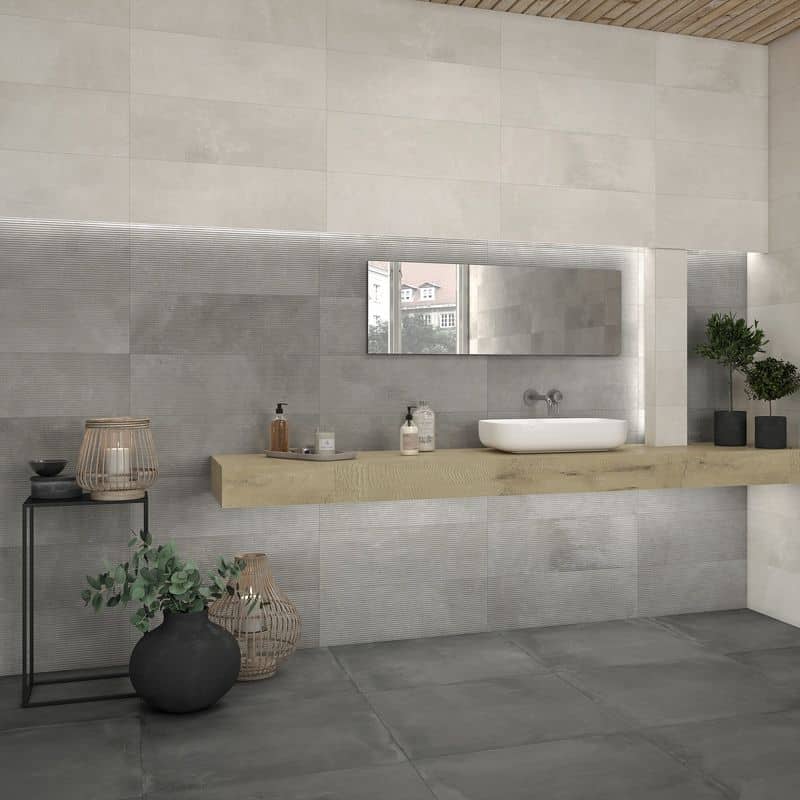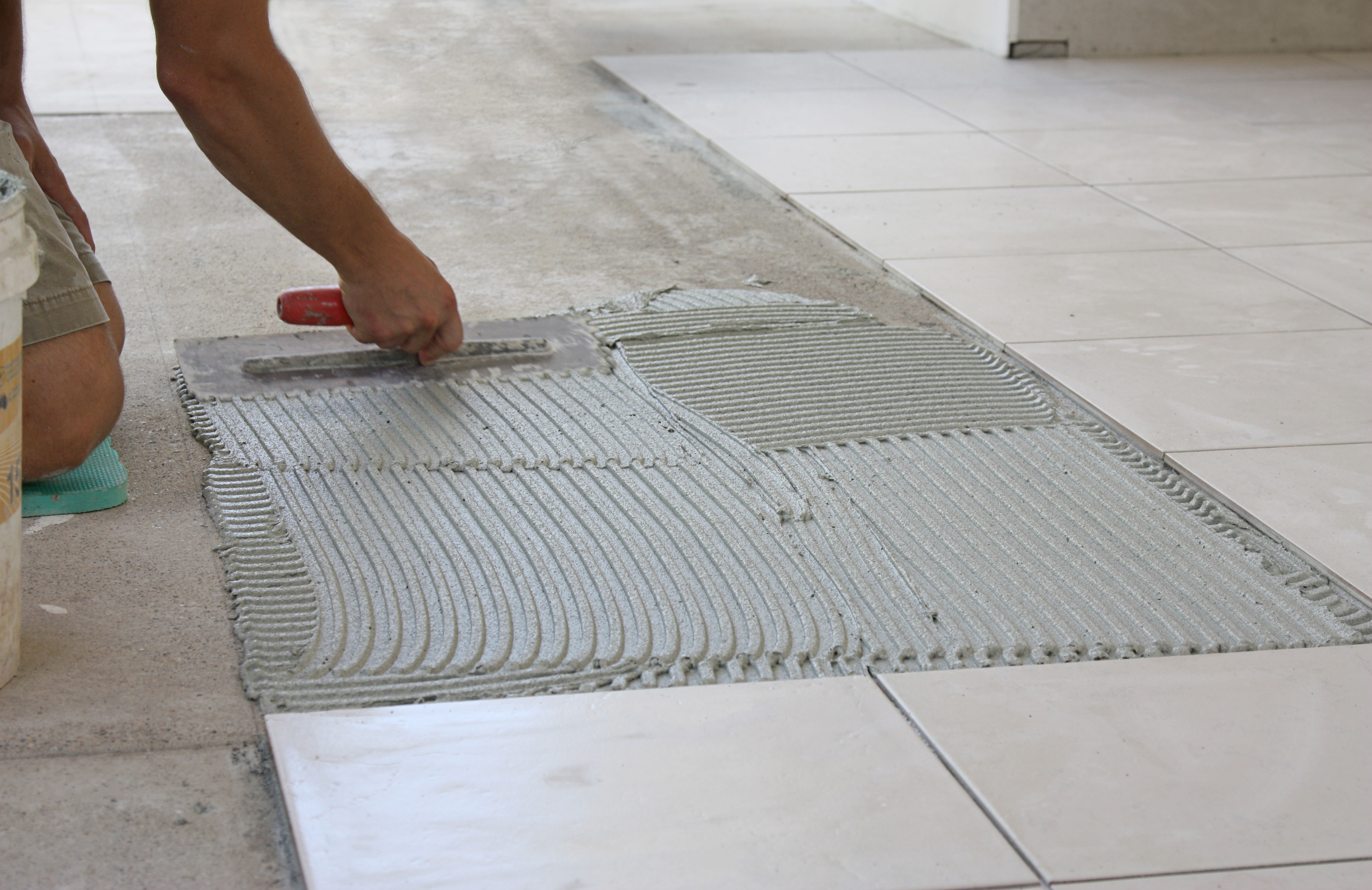Have you ever gazed at a stunning floor tile and thought, “I wish that was on my wall!”? You’re not alone. The allure of durable, stylish floor tiles has led many homeowners to consider them for their walls. But can you truly use floor tiles on walls? The answer is a resounding yes… with some considerations.

Image: agtiling.co.uk
This article delves into the intriguing world of using floor tiles on walls, exploring the pros, cons, and practicalities of this bold design choice. We’ll unravel the secrets to successful installation, discuss the different types of tiles suitable for walls, and offer valuable tips to make your project a resounding success.
Exploring the Possibilities: Why Consider Wall Tiles?
Floor tiles are known for their rugged durability, resisting scratches, stains, and the daily wear and tear of foot traffic. These qualities make them surprisingly attractive for walls, especially in high-traffic areas. Imagine a kitchen backsplash that shrugs off splattered sauces or a bathroom shower that withstands constant moisture. Beyond practical benefits, floor tiles offer immense design versatility.
From the classic elegance of marble to the modern appeal of porcelain, the world of floor tiles is brimming with styles, colors, and textures. The right tiles can transform any space, adding warmth, character, and a touch of sophistication. Whether you crave a rustic farmhouse aesthetic or a sleek, minimalist look, floor tiles have the power to elevate your home’s design.
Delving Deeper: The Pros and Cons of Using Floor Tiles on Walls
Just like any design decision, using floor tiles on walls comes with its own set of advantages and disadvantages. It’s crucial to weigh these factors carefully before embarking on your project.
Advantages
- Durability: Floor tiles are built to last, making them an excellent choice for high-traffic areas prone to spills, moisture, and abrasion. This durability translates into long-term value, as you’ll enjoy the beauty of your tiles for years to come.
- Ease of Maintenance: Most floor tiles are incredibly easy to clean. A simple wipe with a damp cloth is often all you need to keep them looking pristine. This low-maintenance quality is especially appealing for busy families or those who prefer a streamlined cleaning routine.
- Moisture Resistance: Floor tiles are naturally resistant to moisture, making them ideal for areas like bathrooms, kitchens, and showers. They prevent water damage and mold growth, ensuring a healthier and more comfortable living environment.
- Design Versatility: The endless variety of styles, colours, and textures available in floor tiles allows you to express your unique design vision. Whether you crave a dramatic statement or a subtle touch of elegance, floor tiles can help you achieve your desired aesthetic.
- Cost-Effective: In many cases, floor tiles offer a cost-effective alternative to traditional wall coverings. They can save you money in the long run, as they require minimal maintenance and are known for their longevity.

Image: ar.inspiredpencil.com
Disadvantages
- Weight: Floor tiles are generally heavier than traditional wall tiles, which can present challenges during installation. You’ll need to ensure that your walls have adequate support before undertaking the project. Improper installation can lead to cracks or even detachment.
- Potential for Coldness: Tiles can feel cold to the touch, especially in colder climates. This is particularly noticeable in bathrooms and kitchens, where tile walls might require additional insulation or heat sources to ensure comfort.
- Installation Complexity: Installing floor tiles on walls requires a higher level of skill and precision compared to traditional wall tiles. If you lack experience, it’s best to hire a professional for optimal results.
- Potential for Grout Issues: Grout lines between floor tiles can be more prominent, making cleaning more challenging. Darker grout colours can accentuate these lines, while lighter colours might show dirt more easily. Regular cleaning and sealing is essential to maintain a pristine look.
Choosing the Right Tiles for Your Walls
- Porcelain: Arguably the most versatile and durable type of tile, porcelain is ideal for both floors and walls. It’s known for its water-resistance, scratch-resistance, and wide variety of styles and finishes.
- Ceramic: A more affordable alternative to porcelain, ceramic tiles offer good durability and design flexibility. While they might not be as resistant to scratches and stains as porcelain, they are still a reliable choice for walls.
- Stone: Natural stone tiles, such as marble, granite, and slate, add a touch of luxury and timeless elegance. However, they are generally more expensive and require specialized installation and maintenance.
- Glass: Glass tiles offer a modern and sleek aesthetic, reflecting light and creating a unique visual impact. They are often used in kitchens and bathrooms for their ability to brighten up spaces.
Essential Considerations for Successful Installation
The success of your floor tile wall project hinges on proper preparation and installation. Here are some crucial considerations:
- Subfloor and Wall Preparation: Ensure that your walls are smooth, level, and free from any imperfections. Patch up cracks or holes, and apply a primer for better adhesion. A properly prepared surface is the foundation for a long-lasting and beautiful installation.
- Adhesive: Choose a strong, high-quality adhesive specifically designed for floor tiles. This adhesive will ensure that the tiles remain firmly attached to your walls.
- Grout: Opt for a grout specifically formulated for floor tiles, as it will be more robust and durable. Choose a colour that complements your tiles and the overall design of your room.
- Installation Technique: Installing floor tiles on walls requires a different approach than installing traditional wall tiles. It’s essential to use a proper technique to account for the added weight and ensure a secure installation. Consider hiring a professional if you are unsure about the process.
- Safety Precautions: Always prioritize safety when working with tile. Wear protective gear, such as safety glasses and gloves, and utilize appropriate safety tools when handling heavy tiles and power tools.
Can I Use Floor Tiles On Walls
Conclusion:
Utilizing floor tiles on walls is a fantastic way to infuse your home with durability, style, and a touch of boldness. While it’s a project that requires careful planning and execution, the rewards can be immense. By understanding the pros and cons, selecting the right tiles, and ensuring a proper installation, you can create a stunning and long-lasting feature in your home. So, go forth, embrace your creativity, and unleash the potential of floor tiles on your walls!





